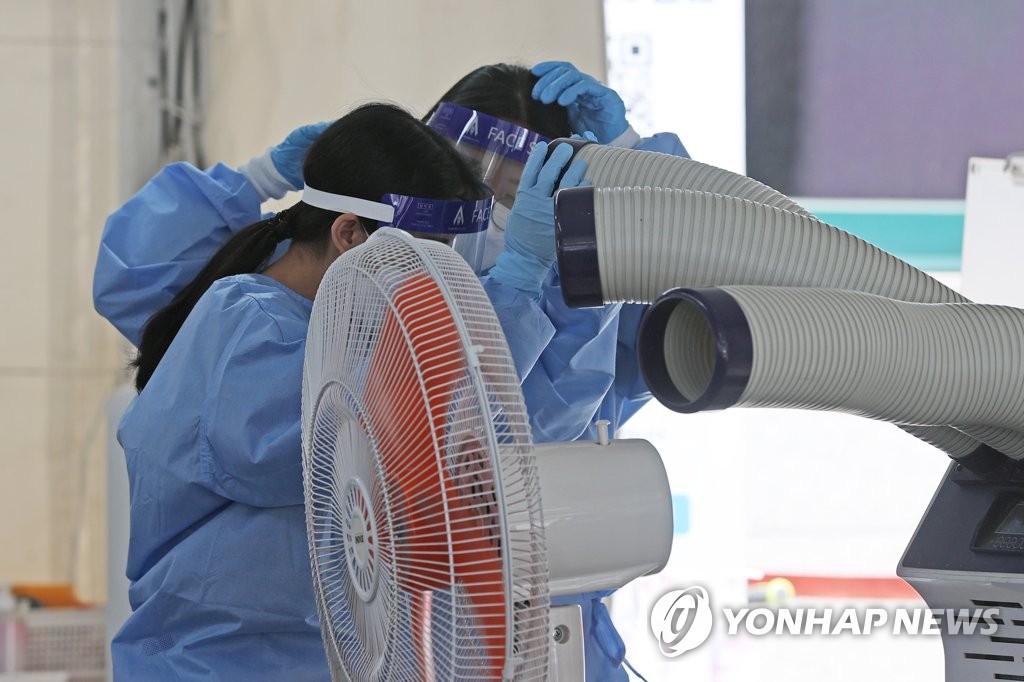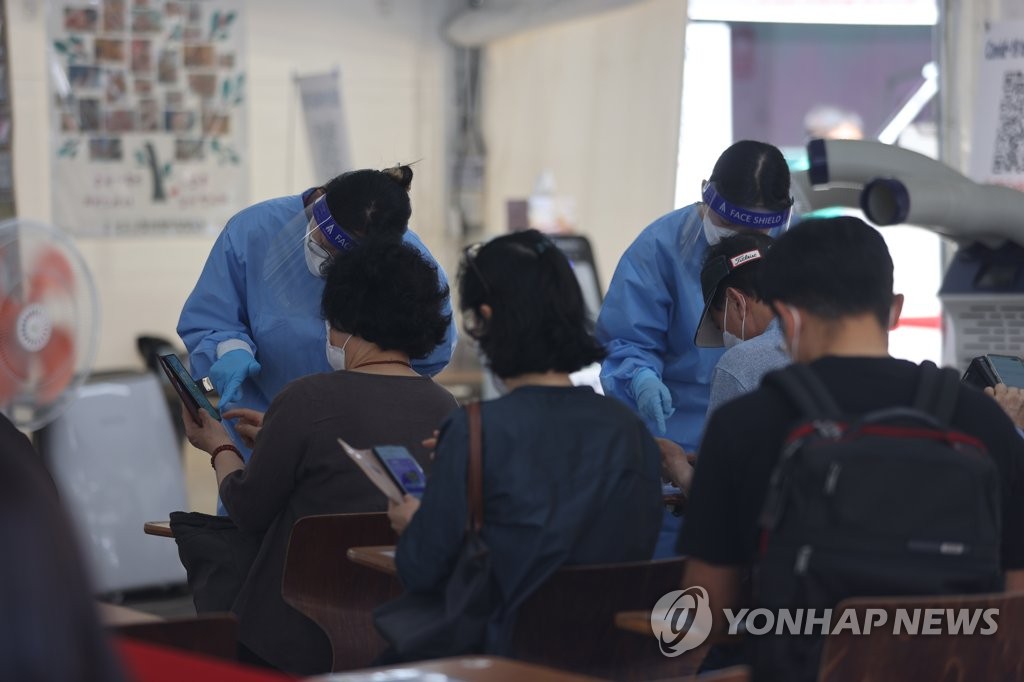- California Assembly OKs highest minimum wage in nation
- S. Korea unveils first graphic cigarette warnings
- US joins with South Korea, Japan in bid to deter North Korea
- LPGA golfer Chun In-gee finally back in action
- S. Korea won’t be top seed in final World Cup qualification round
- US men’s soccer misses 2nd straight Olympics
- US back on track in qualifying with 4-0 win over Guatemala
- High-intensity workout injuries spawn cottage industry
- CDC expands range of Zika mosquitoes into parts of Northeast
- Who knew? ‘The Walking Dead’ is helping families connect
New COVID-19 cases rise above 600 as cluster infections continue
South Korea’s daily new coronavirus cases rose above 600 on Wednesday as health authorities remained alert over a potential hike amid continued cluster inflections and spreading variant cases.
The country reported 654 more COVID-19 cases, including 637 local infections, raising the total caseload to 133,471, the Korea Disease Control and Prevention Agency (KDCA) said.
Wednesday’s tally compares with 528 on Tuesday, 619 on Monday and 610 on Sunday.
There were eight additional virus deaths, raising the total to 1,912.
Later in the day, health authorities and local governments reported 528 new virus cases as of 6 p.m., which is the same figure as that reported at the same time on Tuesday.
South Korea has been raising its guard against sporadic cluster infections across the nation amid the rising number of travelers enjoying warm weather.
The country has so far reported more than 1,000 cases of variant strains of COVID-19 from Britain, South Africa and Brazil, with southern cities, such as Ulsan, reporting the most variant cases. On Tuesday, 15 people were confirmed to have contracted the Indian variant of the virus.


Medical workers place their heads in front of an evaporative air cooler at a COVID-19 test center in southern Seoul on May 19, 2021, amid early summer temperatures across the nation. (Yonhap)
While the country launched its vaccination program on Feb. 26, it has been sluggish in inoculating South Koreans amid the tight supply of vaccines.
As of Tuesday, 1,040,603 people, or 2.3 percent of the country’s population, have been fully vaccinated, receiving both doses of two-part vaccines.
A total of 3,747,236 people, or 7.3 percent, have received their first shots, up 11,822 from a day earlier.
AstraZeneca’s vaccine has been given to 2.05 million people, while 1.7 million have received that of Pfizer.
A total of 23,124 cases of side effects after vaccinations have been reported, up 925 from two days ago, although 95.5 percent of them were mild symptoms.
A total of 140 post-vaccination deaths, up 17 from two days ago, have been reported, although the exact causes of the deaths remain unknown as health authorities could not determine causality.
South Korea’s vaccination campaign put priority on medical workers, elderly people and other populations who were at risk.
Starting May 27, elderly people between age 65 and 74 will get the first doses of AstraZeneca shots. From June 7, people between age 60 and 64 as well as teachers age 30 or older at kindergarten and childcare centers will receive COVID-19 shots.
As of Tuesday, 49.5 percent of people between age 60 and 74 booked vaccine appointments, the KDCA said.
Under the country’s vaccination blueprint, South Korea aims to inoculate 13 million people by the end of June and achieve herd immunity by November.
Of the locally transmitted cases, 245 came from Seoul, and the surrounding Gyeonggi Province accounted for 159.
The total number of people released from quarantine after making full recoveries was 123,237, up 606 from a day earlier.











